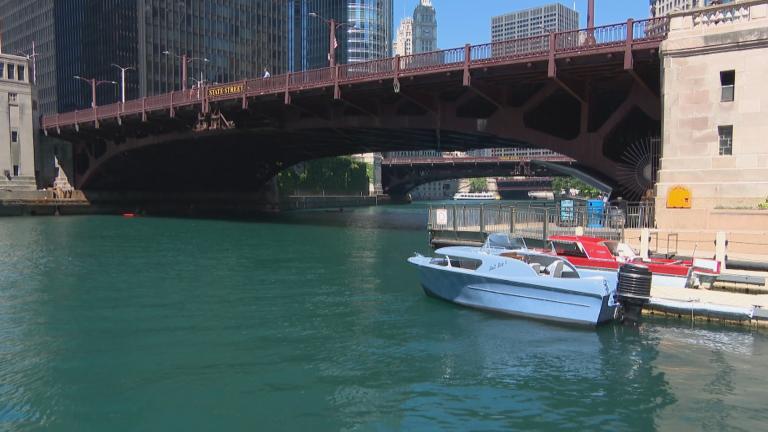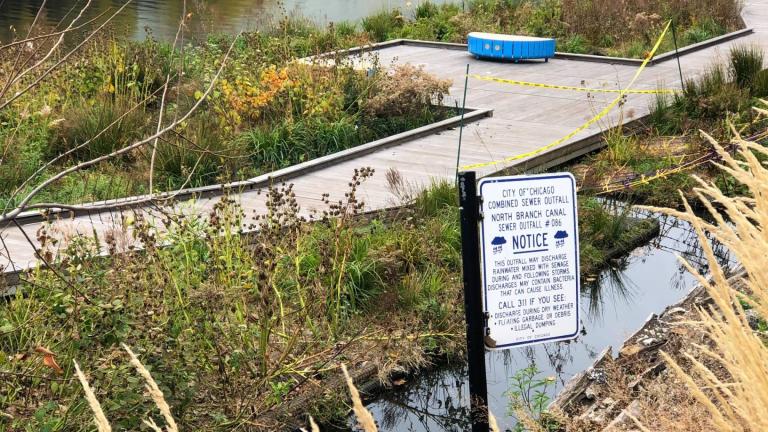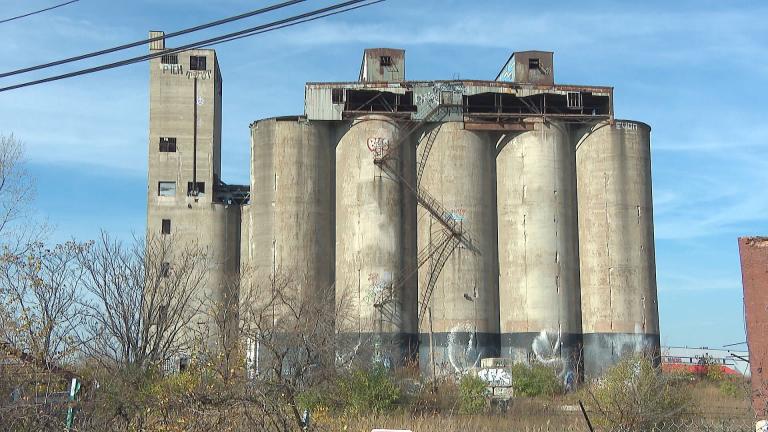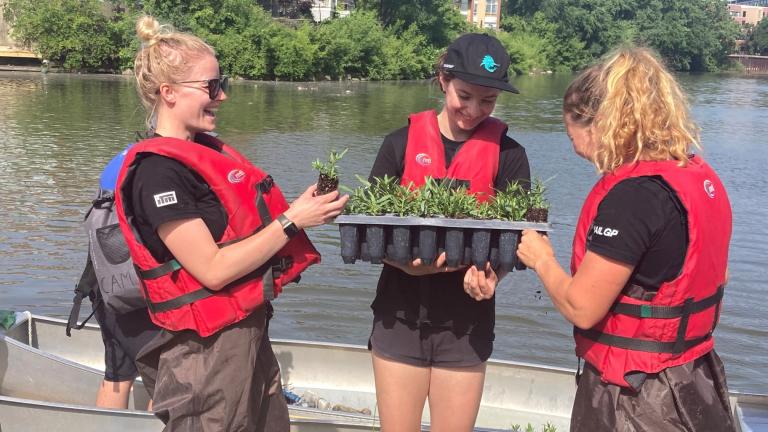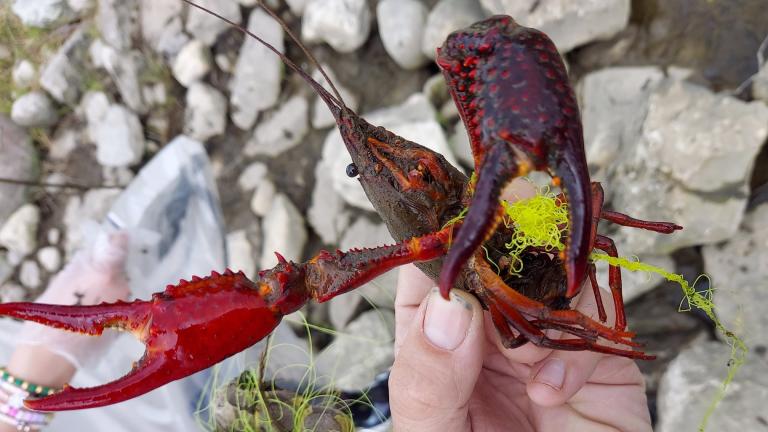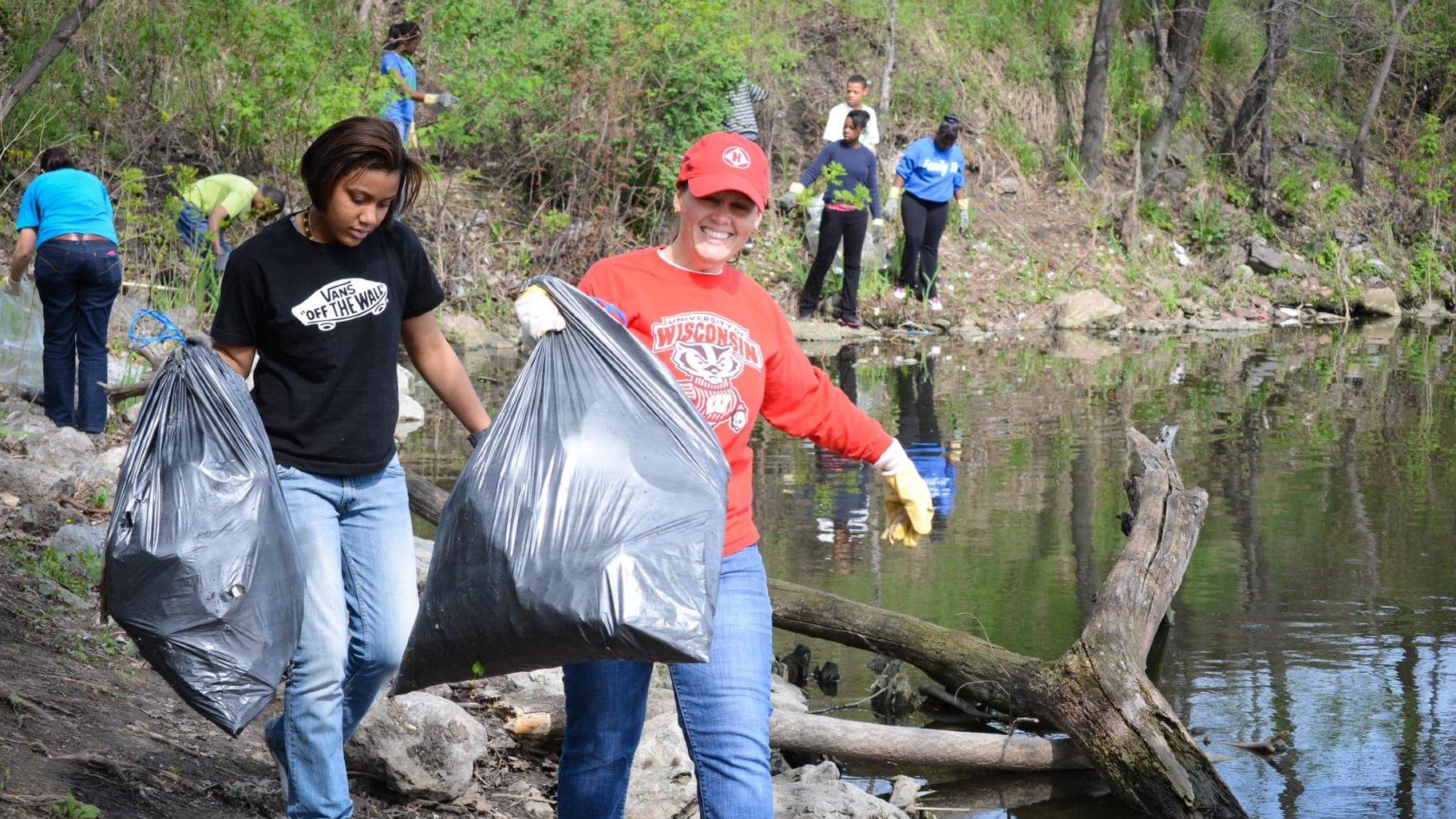 Thousands of volunteers will fan out across the Chicago-Calumet river system Saturday for the annual River Day cleanup. (Courtesy of Friends of the Chicago River)
Thousands of volunteers will fan out across the Chicago-Calumet river system Saturday for the annual River Day cleanup. (Courtesy of Friends of the Chicago River)
Step by step, with the investment of billions of dollars, ongoing advocacy and countless volunteer hours, the Chicago River system is cleaner today than it has been in a century.
Yet while the days of dumping human waste and animal carcasses into the waterway are long gone, the river still has an image problem, courtesy of litter.
Mattresses, shopping carts and tires may not routinely float down the waterway anymore, but discarded water bottles, plastic bags and food wrappers do.
“One of the biggest things about litter is it makes people think that the river is more polluted than it is,” said Margaret Frisbie, executive director of Friends of the Chicago River.
Which is why the organization’s annual Chicago River Day cleanup — its biggest volunteer event of the year, taking place Saturday — is just the beginning of a concerted ”Litter Free Chicago-Calumet River” campaign.
“We know we can’t get everything on Chicago River Day,” Frisbie said. “It behooves us to think systemically about litter.”
To that end, Friends has been slowly growing its network of Litter Free Supply Stations — now numbering more than a dozen — across the river system.
These supply stations are stocked with the equipment people need to conduct their own cleanups: gloves, buckets, litter grabbers, etc. An online toolkit (available in English and Spanish) has all the info people need on how to run a cleanup day, including what kind of safety issues to consider and plan for, and any permissions people might need to obtain, Frisbie said.
This year, Friends is also in the midst of developing a guide for river-edge landowners on best practices they can follow, and to get them thinking about what they could be doing to minimize the problem.
“If you have garbage cans ... are they placed where people can use them? Do you have lids? Is it fenced in to prevent windblown effect?” Frisbie said of the types of questions the guide poses.
In addition to these on-the-ground efforts, Friends is attacking litter from a policy standpoint. In partnership with Loyola University, the organization has been researching the type of litter found in the river. The results: 80% of the litter is plastic and of that, 80% is food-related.
“It’s food foam, it’s coffee cups, it’s plastic bottles,” Frisbie said. “So those are the things we’re advocating for more regulation around.”
Considering the condition of the river just a couple of decades ago, it’s still a win for Friends that litter is among the biggest issues the group is tackling at the moment.
“People care a lot more about the river than they used to,” Frisbie said. “I don’t think people walking along the river used to think they should pick (litter) up. They didn’t see the river as part of their community. I think people now see the river as part of their community and part of their responsibility.”
This year on Chicago River Day, Friends is expecting more than 2,000 volunteers to turn out at a record-setting 87 sites up and down the 156-mile river system.
Most of the sites are at capacity for volunteers, but several still have open slots, including La Villita Park in Chicago, the Little Calumet boat launch near Riverdale, Kickapoo Woods in Riverdale, Sand Ridge Nature Center in South Holland, Greenbelt Forest Preserve in North Chicago, and Somme Woods in Northbrook. (Click here for registration information.)
“When you go to our website and you sign up and you look at the map ... you get the sense of, ‘Wow, there’s people north, there’s people south, there’s people southwest, and we’re all doing this together,’” Frisbie said. “To us, that’s really exciting, this idea that it’s a collective effort, improving the health of the Chicago-Calumet river system. If all of us roll up our sleeves in a whole host of ways, then we get the job done.”
MEET THE RIVER DAY MASCOT
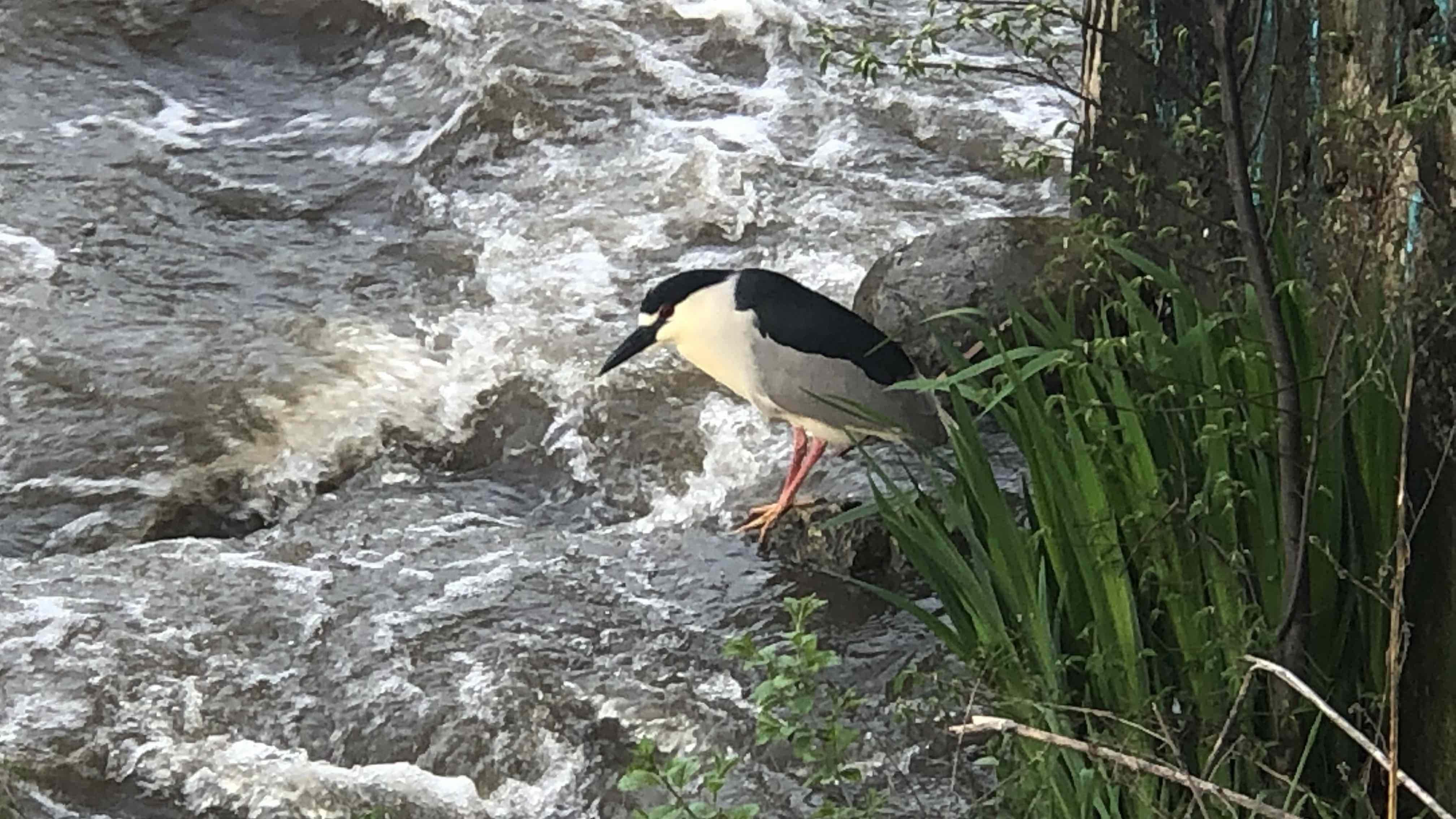 A black-crowned night heron in River Park, May 2024. (Patty Wetli / WTTW News)
A black-crowned night heron in River Park, May 2024. (Patty Wetli / WTTW News)
Every year, Friends of the Chicago River chooses a “mascot” for its annual cleanup, and the 2024 featured animal — the black-crowned night heron — is particularly special to Friends, said Margaret Frisbie.
The birds are endangered in Illinois, but “if you’re walking along the Chicago River, you would never believe that in a million years,” she said.
The herons’ visible presence is a testament to the river’s improved water quality: There wouldn’t be herons on the river if the water couldn’t support fish for the birds to eat.
The bird’s success story “is demonstrative of all the work that we’ve done on the Chicago River system all these years,” said Frisbie. That includes habitat restoration.
The herons have also responded to a huge change along the North Branch that Friends spent decades fighting for — the removal of a dam in River Park, where the North Branch meets the North Shore Channel.
“These black-crowned night herons are like, ‘We love this! We are so happy right here in Chicago at the confluence,’’’ Frisbie said.
Contact Patty Wetli: @pattywetli | (773) 509-5623 | [email protected]

